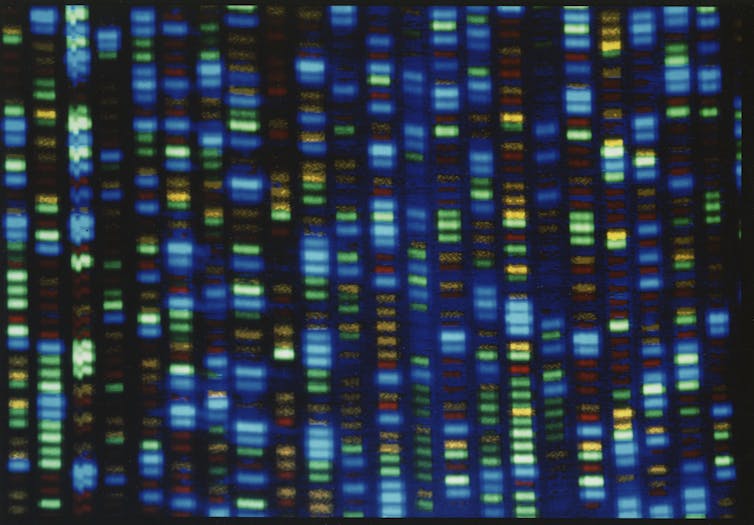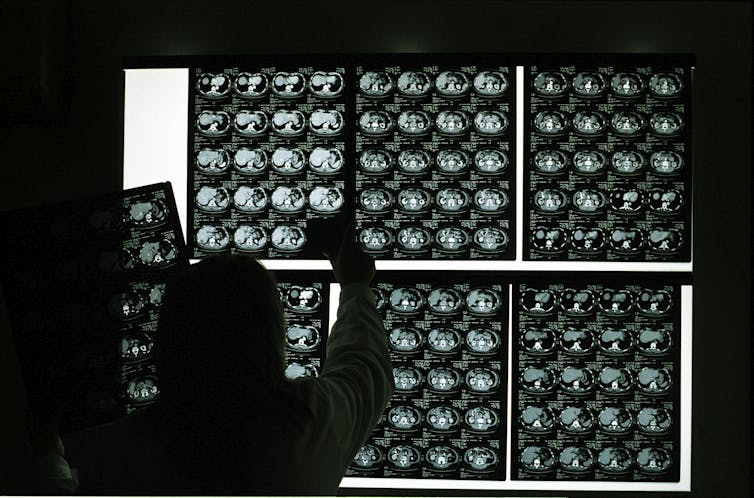The follow of medication has undergone an unbelievable, albeit incomplete, transformation over the previous 50 years, transferring steadily from a subject knowledgeable primarily by knowledgeable opinion and the anecdotal expertise of particular person clinicians towards a proper scientific self-discipline.
The appearance of evidence-based drugs meant clinicians recognized the best therapy choices for his or her sufferers based mostly on high quality evaluations of the newest analysis. Now, precision drugs is enabling suppliers to make use of a affected person’s particular person genetic, environmental and scientific info to additional personalize their care.
The potential advantages of precision drugs additionally include new challenges. Importantly, the quantity and complexity of knowledge out there for every affected person is quickly growing. How will clinicians work out which knowledge is helpful for a specific affected person? What’s the only approach to interpret the info as a way to choose one of the best therapy?
These are exactly the challenges that laptop scientists like me are working to deal with. Collaborating with specialists in genetics, drugs and environmental science, my colleagues and I develop computer-based methods, typically utilizing synthetic intelligence, to assist clinicians combine a variety of advanced affected person knowledge to make one of the best care selections.
The rise of evidence-based drugs
As just lately because the Nineteen Seventies, scientific selections had been based totally on knowledgeable opinion, anecdotal expertise and theories of illness mechanisms that had been continuously unsupported by empirical analysis. Round that point, a couple of pioneering researchers argued that scientific decision-making must be grounded in one of the best out there proof. By the Nineties, the time period evidence-based drugs was launched to explain the self-discipline of integrating analysis with scientific experience when making selections about affected person care.
The bedrock of evidence-based drugs is a hierarchy of proof high quality that determines what sorts of knowledge clinicians ought to depend on most closely to make therapy selections.
Sure forms of proof are stronger than others. Whereas filtered info has been evaluated for rigor and high quality, unfiltered info has not.
CFCF/Wikimedia Commons, CC BY-SA
Randomized managed trials randomly place individuals in several teams that obtain both an experimental therapy or a placebo. These research, additionally referred to as scientific trials, are thought-about one of the best particular person sources of proof as a result of they permit researchers to check therapy effectiveness with minimal bias by making certain the teams are related.
Observational research, similar to cohort and case-control research, concentrate on the well being outcomes of a bunch of individuals with none intervention from the researchers. Whereas utilized in evidence-based drugs, these research are thought-about weaker than scientific trials as a result of they don’t management for potential confounding elements and biases.
General, systematic critiques that synthesize the findings of a number of analysis research provide the very best high quality proof. In distinction, single-case experiences detailing one particular person’s expertise are weak proof as a result of they might not apply to a wider inhabitants. Equally, private testimonials and knowledgeable opinions alone are usually not supported by empirical knowledge.
In follow, clinicians can use the framework of evidence-based drugs to formulate a selected scientific query about their affected person that may be clearly answered by reviewing one of the best out there analysis. For instance, a clinician may ask whether or not statins can be more practical than weight loss plan and train to decrease LDL ldl cholesterol for a 50 year-old male with no different threat elements. Integrating proof, affected person preferences and their very own experience, they will develop diagnoses and therapy plans.
As could also be anticipated, gathering and placing all of the proof collectively could be a laborious course of. Consequently, clinicians and sufferers generally depend on scientific pointers developed by third events such because the American Medical Affiliation, the Nationwide Institutes of Well being and the World Well being Group. These pointers present suggestions and requirements of care based mostly on systematic and thorough evaluation of accessible analysis.
Daybreak of precision drugs
Across the identical time that evidence-based drugs was gaining traction, two different transformative developments in science and well being care had been underway. These advances would result in the emergence of precision drugs, which makes use of patient-specific info to tailor well being care selections to every individual.
The primary was the Human Genome Challenge, which formally started in 1990 and was accomplished in 2003. It sought to create a reference map of human DNA, or the genetic info cells use to perform and survive.
This map of the human genome enabled scientists to find genes linked to hundreds of uncommon illnesses, perceive why folks reply otherwise to the identical drug, and establish mutations in tumors that may be focused with particular therapies. More and more, clinicians are analyzing a affected person’s DNA to establish genetic variations that inform their care.

Output from the DNA sequencer utilized by the Human Genome Challenge.
Nationwide Human Genome Analysis Institute/Flickr
The second was the event of digital medical data to retailer affected person medical historical past. Though researchers had been conducting pilot research of digital data for a number of years, the event of business requirements for digital medical data started solely within the late Nineteen Eighties. Adoption didn’t turn into widespread till after the 2009 American Restoration and Reinvestment Act.
Digital medical data allow scientists to conduct large-scale research of the associations between genetic variants and observable traits that inform precision drugs. By storing knowledge in an organized digital format, researchers can even use these affected person data to coach AI fashions to be used in medical follow.
Extra knowledge, extra AI, extra precision
Superficially, the concept of utilizing affected person well being info to personalize care shouldn’t be new. For instance, the continued Framingham Coronary heart Research, which started in 1948, yielded a mathematical mannequin to estimate a affected person’s coronary artery illness threat based mostly on their particular person well being info, moderately than the common inhabitants threat.
One elementary distinction between efforts to personalize drugs now and previous to the Human Genome Challenge and digital medical data, nevertheless, is that the psychological capability required to research the dimensions and complexity of particular person affected person knowledge out there as we speak far exceeds that of the human mind. Every individual has a whole lot of genetic variants, a whole lot to hundreds of environmental exposures and a scientific historical past that will embrace quite a few physiological measurements, lab values and imaging outcomes. In my crew’s ongoing work, the AI fashions we’re growing to detect sepsis in infants use dozens of enter variables, a lot of that are up to date each hour.

The affected person info out there to docs is growing in quantity and complexity.
Marco Vacca/Photographer’s Selection RF by way of Getty Pictures
Researchers like me are utilizing AI to develop instruments that assist clinicians analyze all this knowledge to tailor diagnoses and therapy plans to every particular person. For instance, some genes can have an effect on how nicely sure drugs work for various sufferers. Whereas genetic exams can reveal a few of these traits, it’s not but possible to display each affected person on account of value. As an alternative, AI methods can analyze a affected person’s medical historical past to foretell whether or not genetic testing shall be helpful based mostly on how seemingly they’re to be prescribed a drugs recognized to be influenced by genetic elements.
One other instance is diagnosing uncommon illnesses, or situations that have an effect on fewer than 200,000 folks within the U.S. Prognosis may be very troublesome as a result of most of the a number of thousand recognized uncommon illnesses have overlapping signs, and the identical illness can current otherwise amongst completely different folks. AI instruments can help by analyzing a affected person’s distinctive genetic traits and scientific traits to find out which of them seemingly trigger illness. These AI methods might embrace elements that predict whether or not the affected person’s particular genetic variation negatively impacts protein perform and whether or not the affected person’s signs are just like particular uncommon illnesses.
Way forward for scientific decision-making
New applied sciences will quickly allow routine measurement of different forms of biomolecular knowledge past genetics. Wearable well being gadgets can repeatedly monitor coronary heart price, blood stress and different physiological options, producing knowledge that AI instruments can use to diagnose illness and personalize therapy.
Associated research are already producing promising leads to precision oncology and customized preventive well being. For instance, researchers are growing a wearable ultrasound scanner to detect breast most cancers, and engineers are growing skinlike sensors to detect modifications in tumor dimension.
Analysis will proceed to increase our data of genetics, the well being results of environmental exposures and the way AI works. These developments will considerably alter how clinicians make selections and supply care over the following 50 years.



